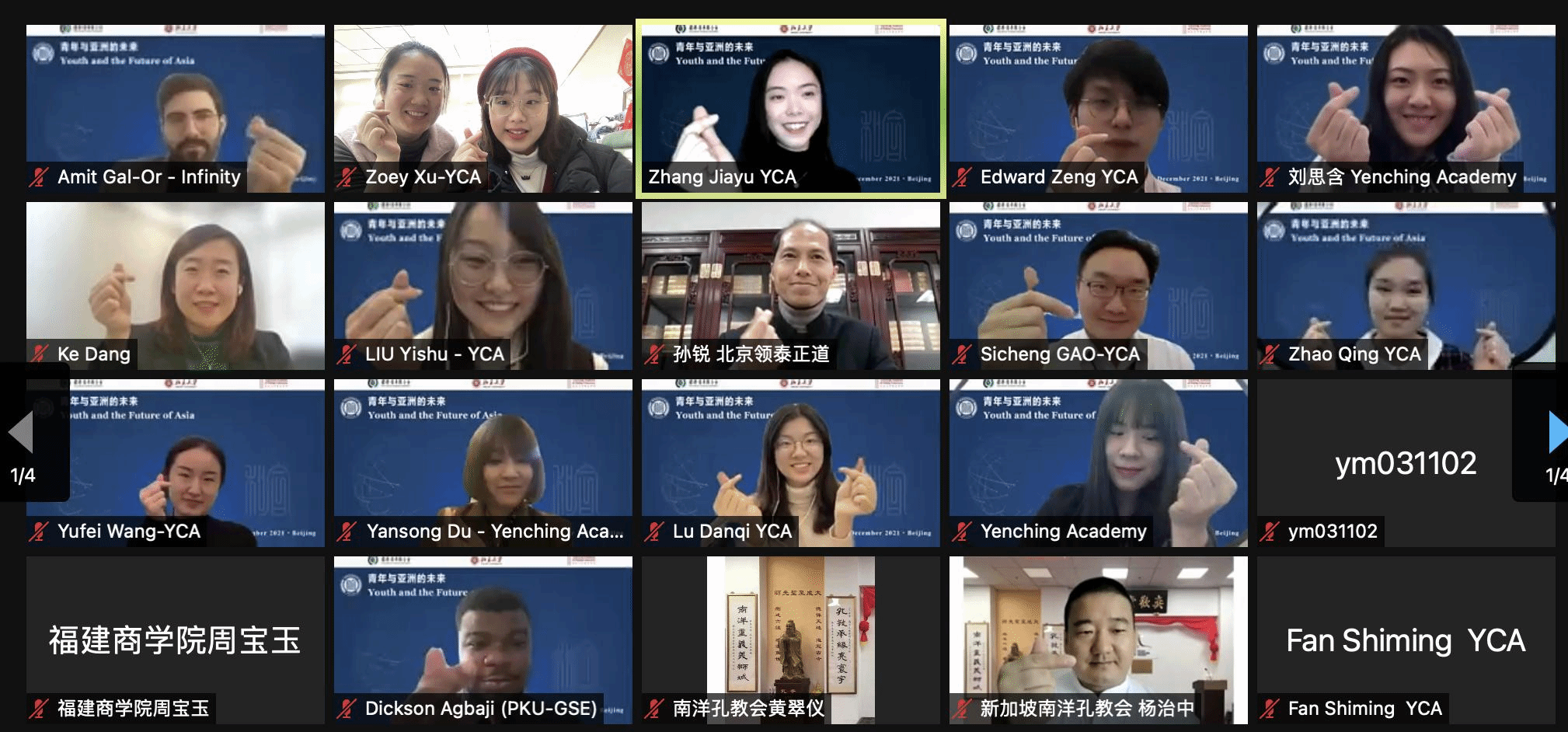On the morning of December 17, the International Confucian Association (ICA) and Peking University (PKU) co-organized the “Harmony & Cooperation” forum in Beijing, chaired by Hao Ping, President of Peking University. The ICA Chairman Liu Yandong delivered a keynote speech, and Fukuda Yasuo, the ICA Councilor and former Japanese prime minister, and H.R.H. Princess Maha Chakri Sirindhorn also addressed the forum.
Yuan Ming, Dean of Yenching Academy, expressed her anticipation of a promising future of Asian civilization and its interconnection with international development. In her speech, Dean Yuan touched upon the relationships between the world and China and science and humanity, describing life at YCA and Yenching Scholars’ efforts for a harmonious world. She remarked that “We must look at the future. It is the responsibility of an international organization and a government, particularly a major country, to learn from each other in the worldwide personnel movement and attract and foster more global citizens who can agree to disagree.”
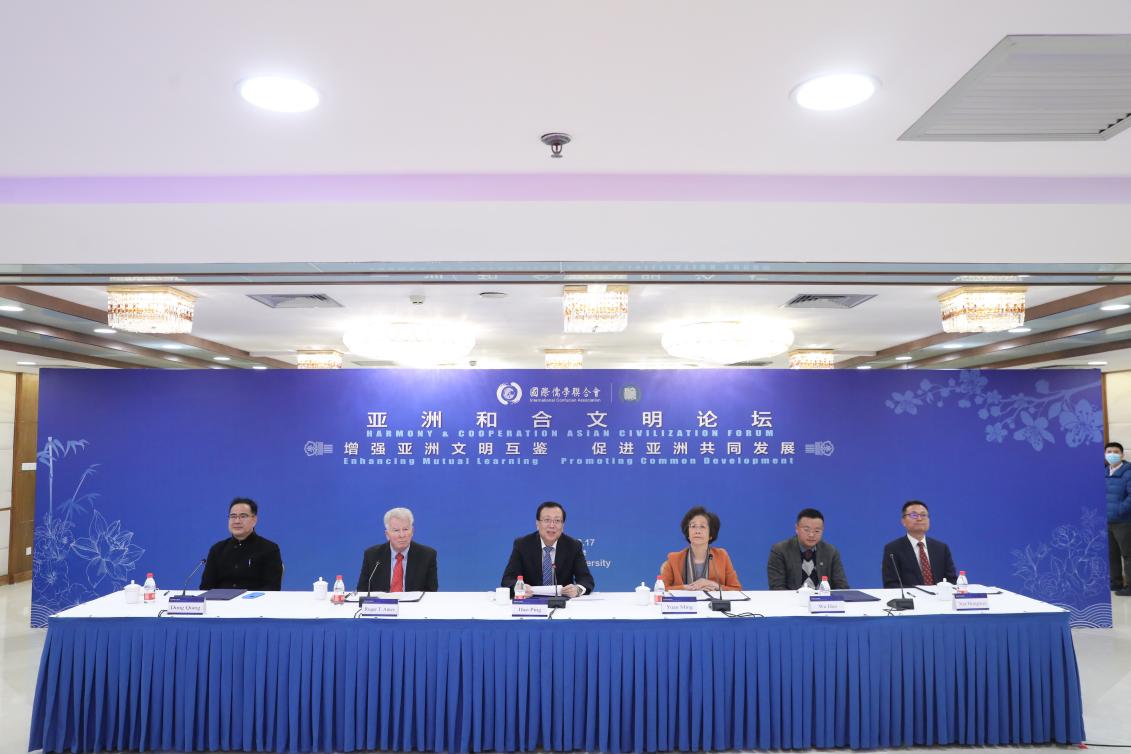
In the afternoon, the Yenching Academy launched an online meeting, “Youth and the Future of Asia,” consisting of two parts, "Plenary: The Growth of Young Generation" and "Discussion: The Innovation of Young Generations". Zhang Jiayu, 2021 Yenching Scholar from China, presided over the sessions.
Brent Haas, Associate Dean of Yenching Academy, delivered the opening speech, which addressed steps youths can take to deal with difficulties in studies and life. Drawing on his experience, he advised young people to set long-term goals, find and grasp new opportunities, adhere to and review their choices, and wholeheartedly embrace diversity.
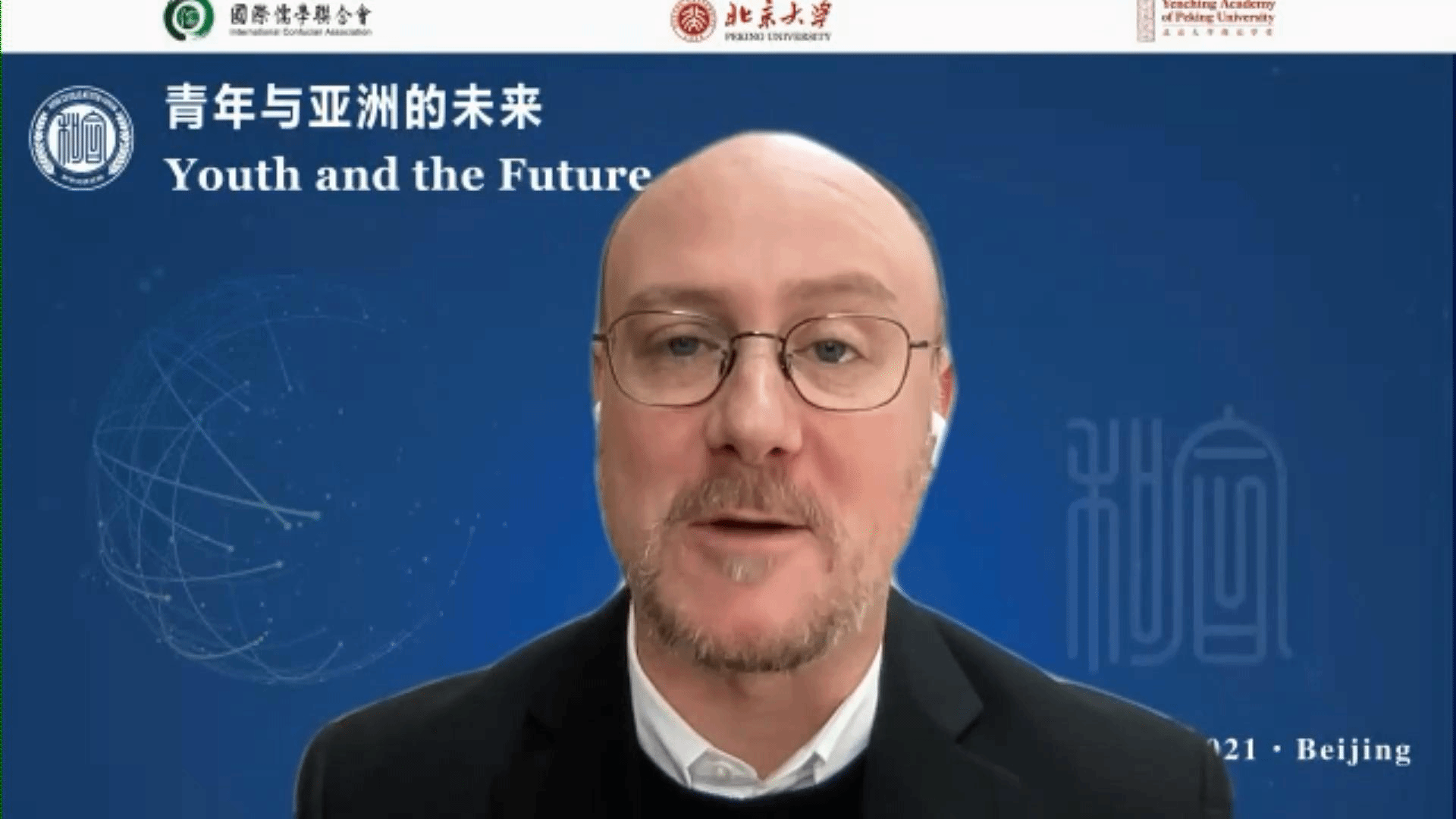
Nine guest speakers were invited to share their stories in the “The Growth of Young Generation” session.
Wang Dong from China, a doctoral candidate at the PKU Department of Philosophy and Religious Studies, explored harmony in diversity by studying the “Instructions from Qian Liu for His Descendants” and looking into his family history. Wang discussed his life at YCA and the PKU New Youth Studies Center and his opinions on the Way and tactics, the one and the many, rationalism and nationalism.
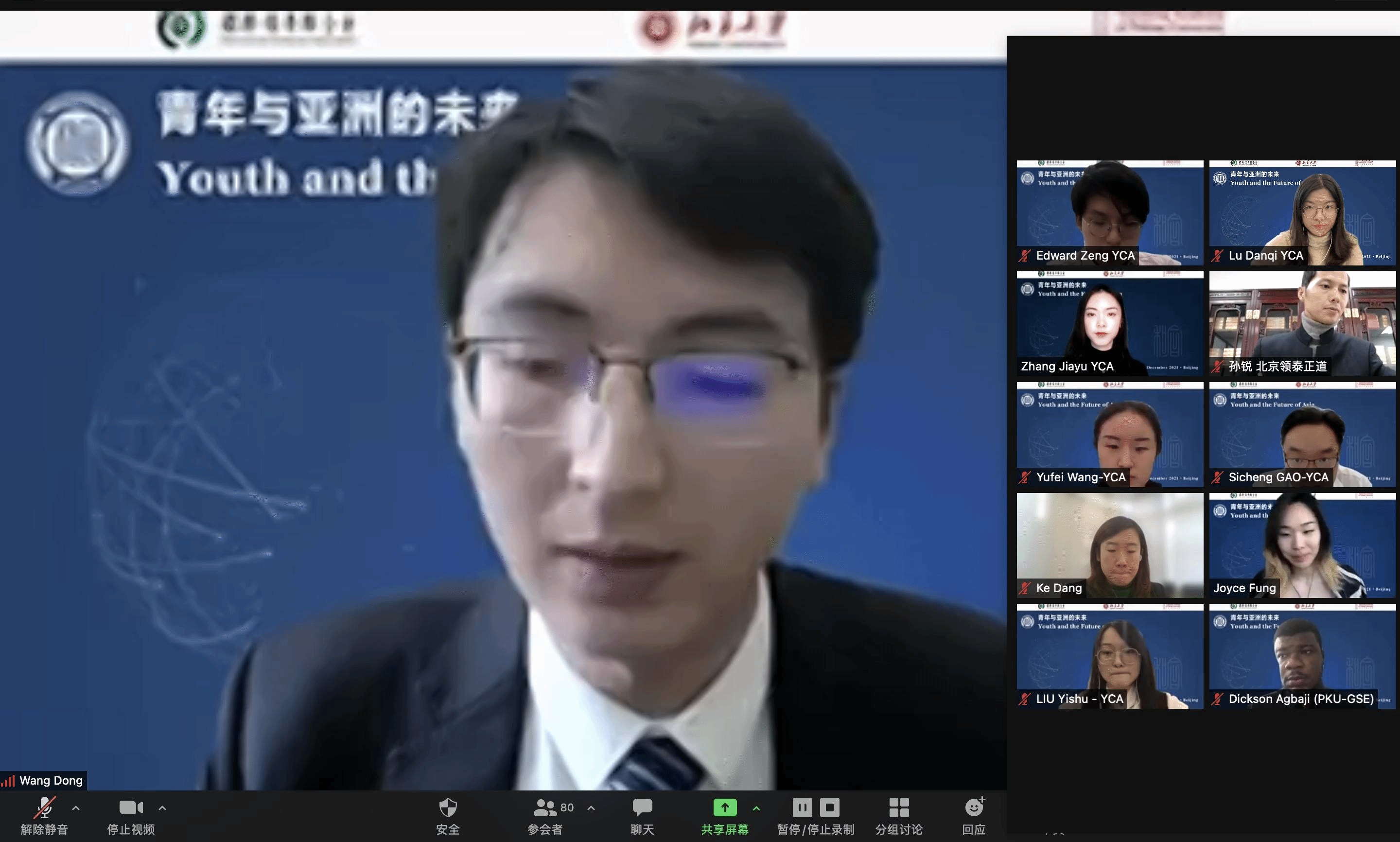
Fung Wai Yun, 2020 Yenching Scholar from Hong Kong, China and curator of the multidisciplinary exhibition “Through Our Door,” talked about her life at Peking University and Harvard University and her thoughts on discipline and freedom, and choice and perseverance. Fung stated that we must abide by discipline in action and consider freedom, noting that our life is a balance between freedom and discipline and integration of plan and choice.
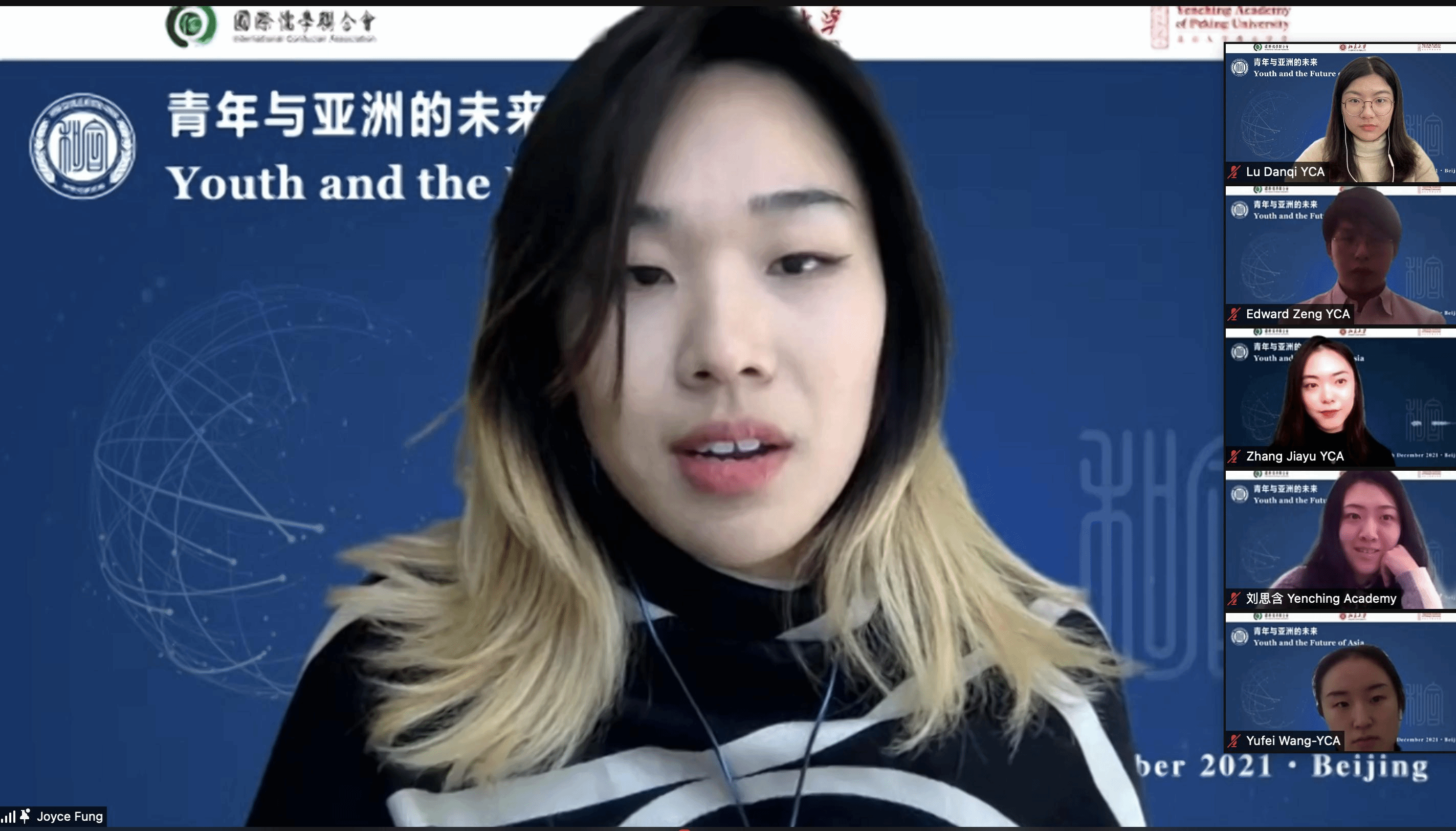
Van Cao Mai from Vietnam, a China Telecom Vietnam Representative Office staff, also gave a speech that touched on her study abroad working experiences. She said that the experiences offered her new understandings of herself and the world thanks to the multiple cultures she encountered. She highlighted the importance of connecting to the world and exploring diverse cooperation despite the increasingly difficult atmosphere fueling division in the pandemic.
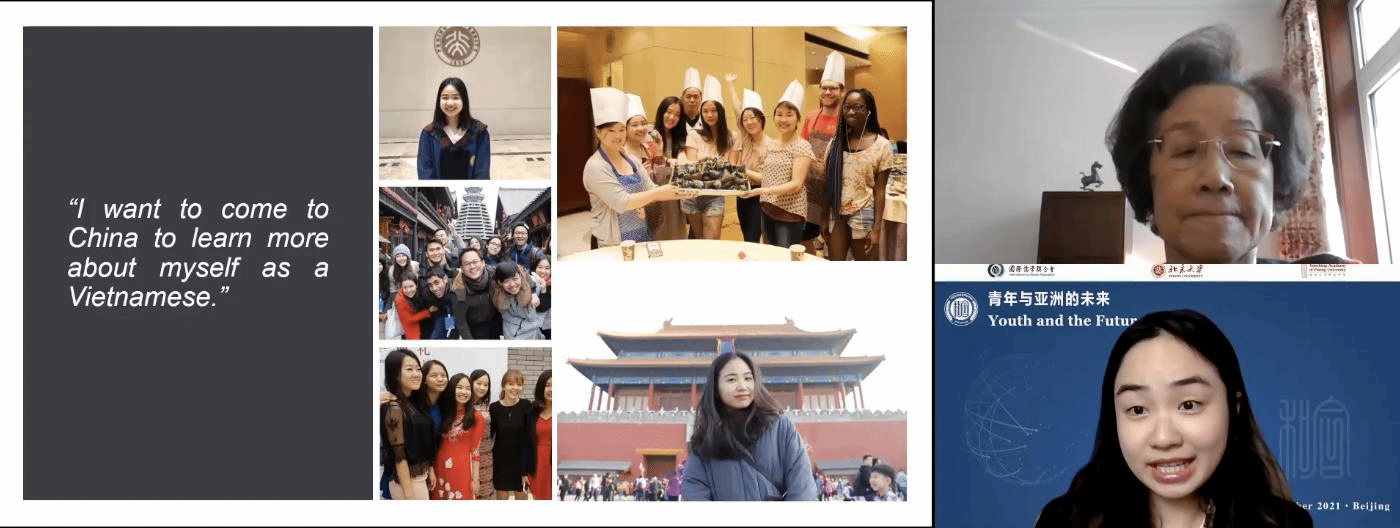
Dickson David Agbaji from Nigeria, a Ph.D. student at the Graduate School of Education, Peking University, shared his China story. The letter from Chinese President Xi Jinping to the international students of Peking University marked a highlight moment in Agbaji’s China experience. He noted his commitment to expanding his knowledge of Chinese culture, making friends in the county, and finding opportunities for his future career.
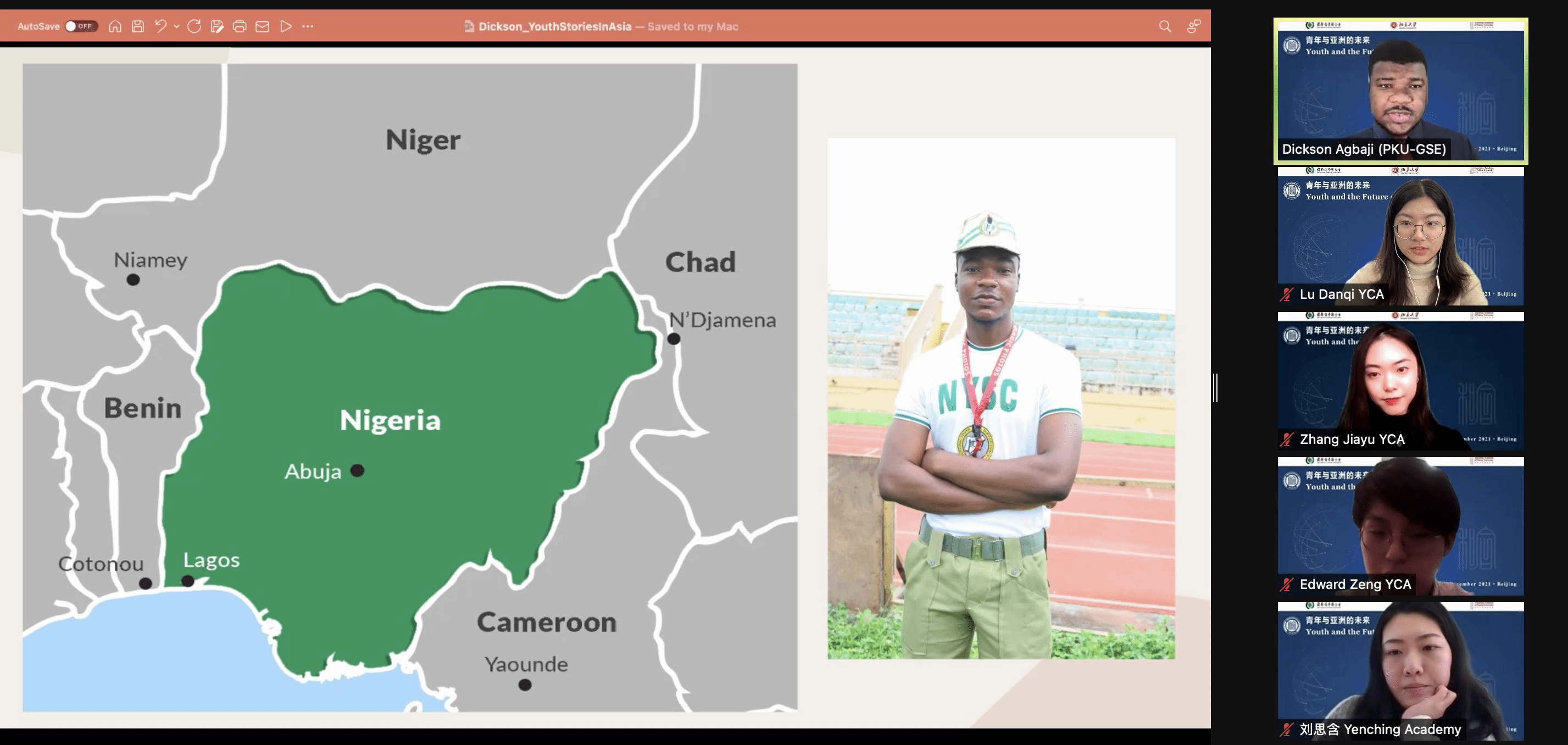
Wang Yan, a Forbes U30 Venture Capital from China, gave her insights on business, investment, and life. She advised young people to “Be firm on what you love; be conscious of what you are doing and its impacts; spend your time and energy where it is needed; get nourished by fine traditional Chinese culture; and rethink and think anew about your life.”
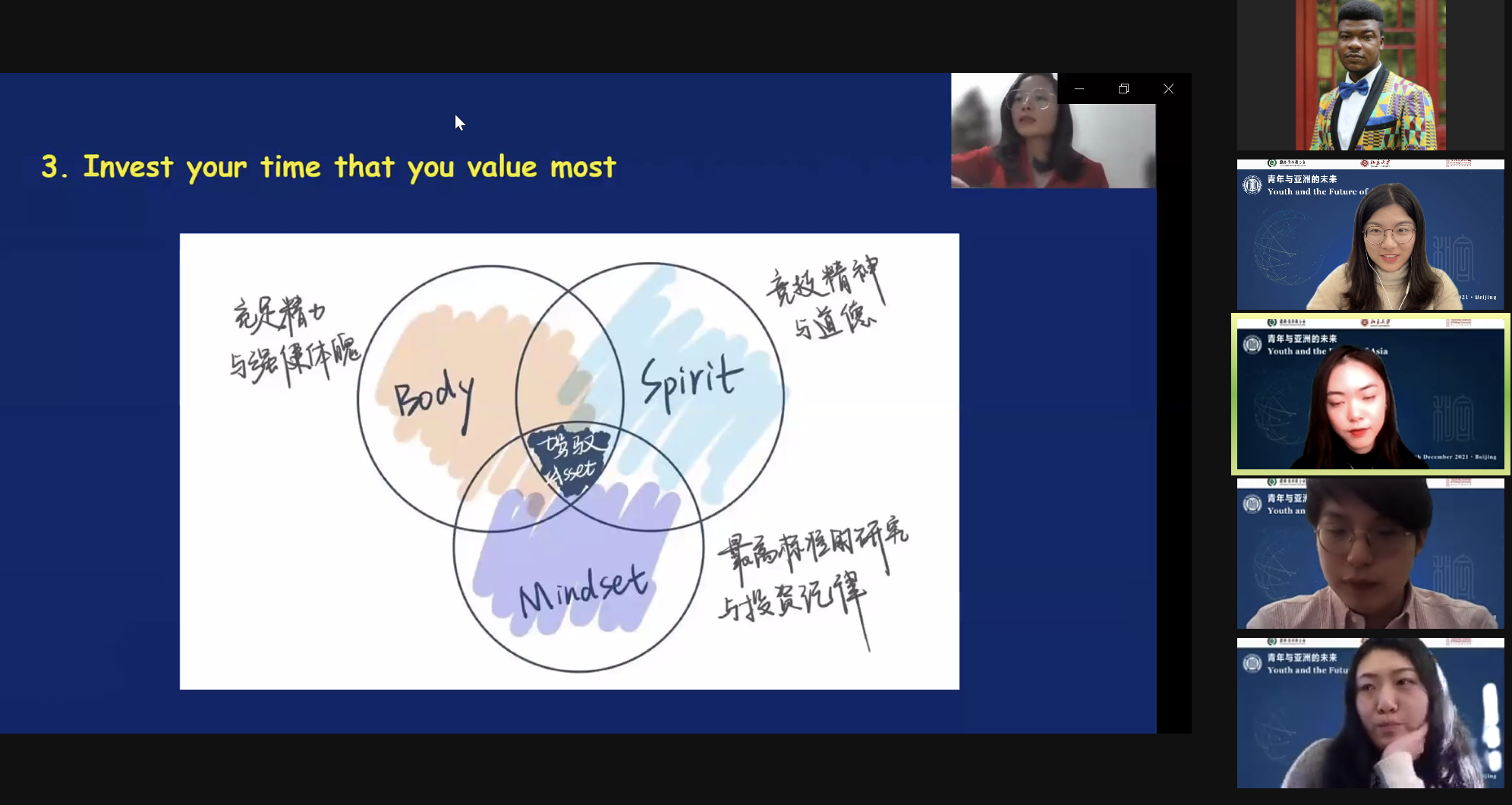
Asmod Karki from Nepal and COO of Kathmandu Living Labs (KLL) told the story of young leaders and the overall development of Asia. Thanks to communication with Asian youth, he grew familiar with Asia and was greatly inspired. Asmod highlighted that cross-cultural exchange is an excellent path to innovation.

Steven Yue Heng Yang from Singapore, a staff at UNESCO’s Digital Innovation and Transformation Section, also delivered a remark focusing on a holistic approach to the Chinese philosophy of tianxia. Steven looked into Zhao Tingyang’s interpretation of tianxia and observed how this ancient Chinese philosophy could be applied in cultural and social modelling around the globe.
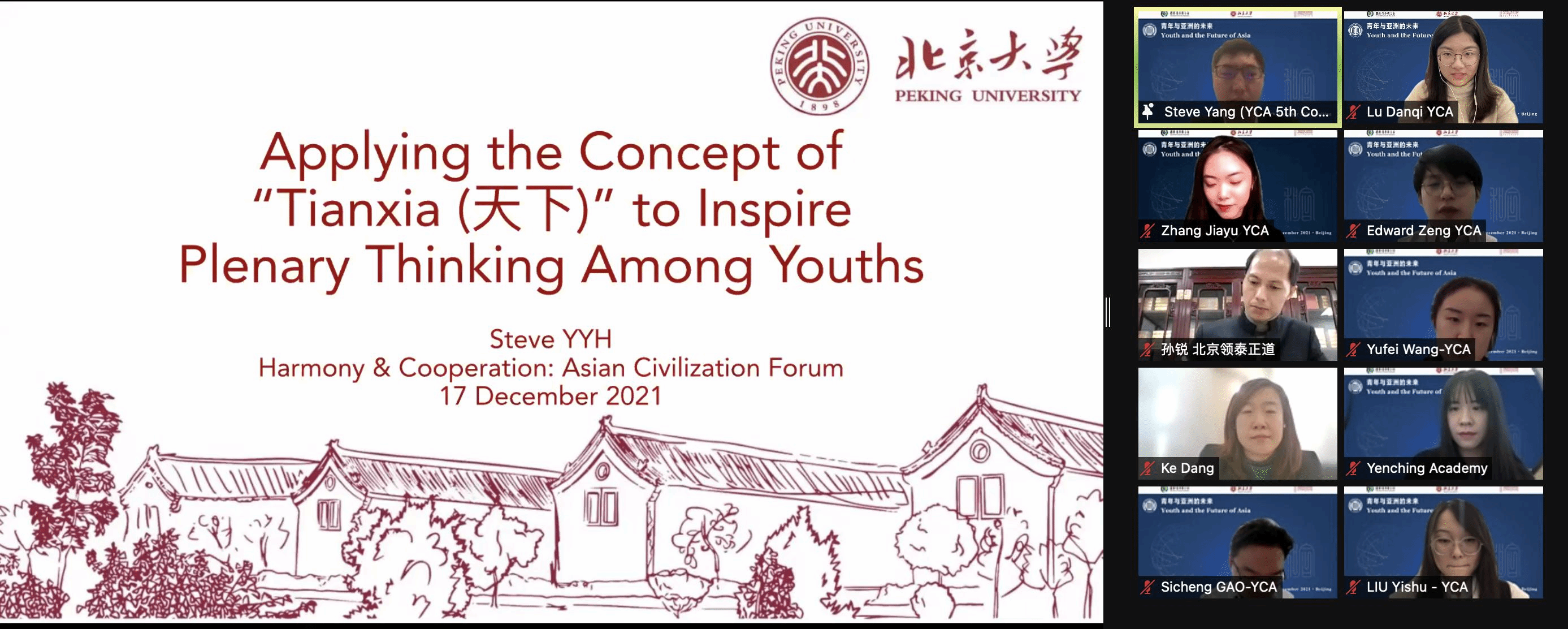
In the Q&A section, the guest speakers and the audience discussed what international students should do to get better involved in cross-border exchanges, how the youth deal with opportunities and challenges, and the impacts of nationalism on today’s world.
The “The Innovation of Young Generations” section was chaired by Daniel Crain (United States), Editor of Phoenix New Media, alongside other speakers Jonas Wolf (Germany), Founder and CEO of LeaDAOship, Jeffrey Honghao Niu (United States), Innovation & Experience Lead for Genetron Health, and Ge Jianqiao (China), lecturer of PKU Academy for Advanced Interdisciplinary Studies. The guests had good talks on topics, including creative thinking in entrepreneurship and scientific research.
When discussing “how students can foster a capability innovation,” Jeffrey noted his doubt of an existing pattern to follow in creative studies, adding that the extent one goes was more important than the specific skills one gets. He suggested taking actions to change, through a project or a personal approach, for deeper thinking and better dealing with complicated issues.
Ge Jianqiao reflected on her research and highlighted the importance of interdisciplinary paradigms in solving the problems of the times and in the fields of brain science, medicine, and health. However, she did not think interdisciplinary studies offer a one-for-all solution. “One must be self-driven for interdisciplinary studies,” she remarked.
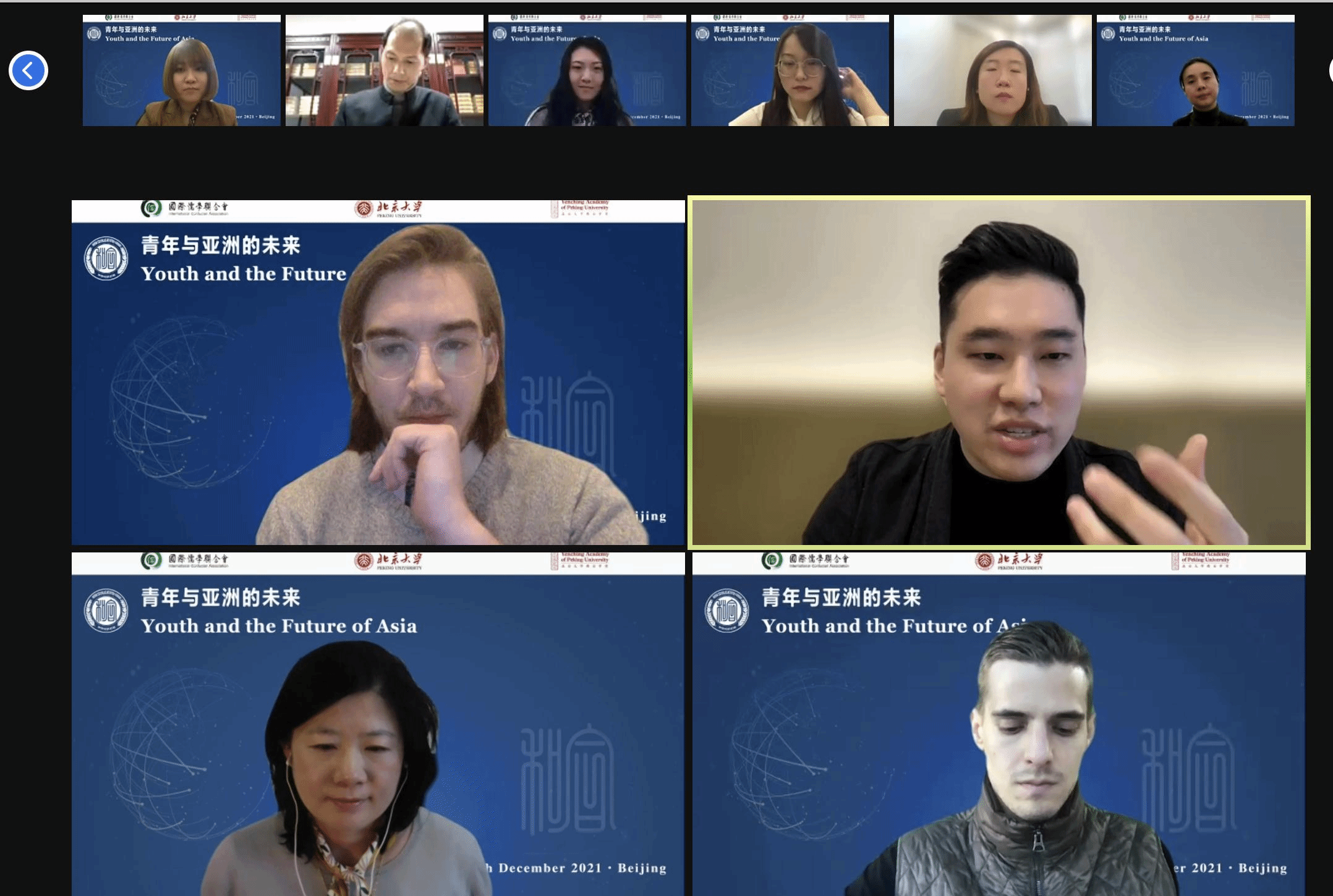
Next, the guests analyzed the prospects of their fields.
Jeffrey works in cancer screening. He said it was a choice based on his personal goal. Some jobs may be more challenging in the early stage. Nonetheless, he recommended that when making a career choice, one needs to look at what they are learning and doing and the future of the sector they intend to settle in.
Jonas talked about the paragon of innovation. He once worked on an innovation project at Cambridge University and learned much about surmounting difficulties, engaging employees, and drawing business plans. Also, the experience helped him better how to deal with life and failure.
Ge Jianqiao remarked that scholars of interdisciplinary studies are also facing new issues, such as the challenge digital technology imposes on humans and the paradox our brain faces when exploring the new and following the old. She called for more discussion and collaboration.
The forum concluded successfully following a closing remarking from Ms. Zhang Jiayu, who thanked the speakers and participants for their time.
